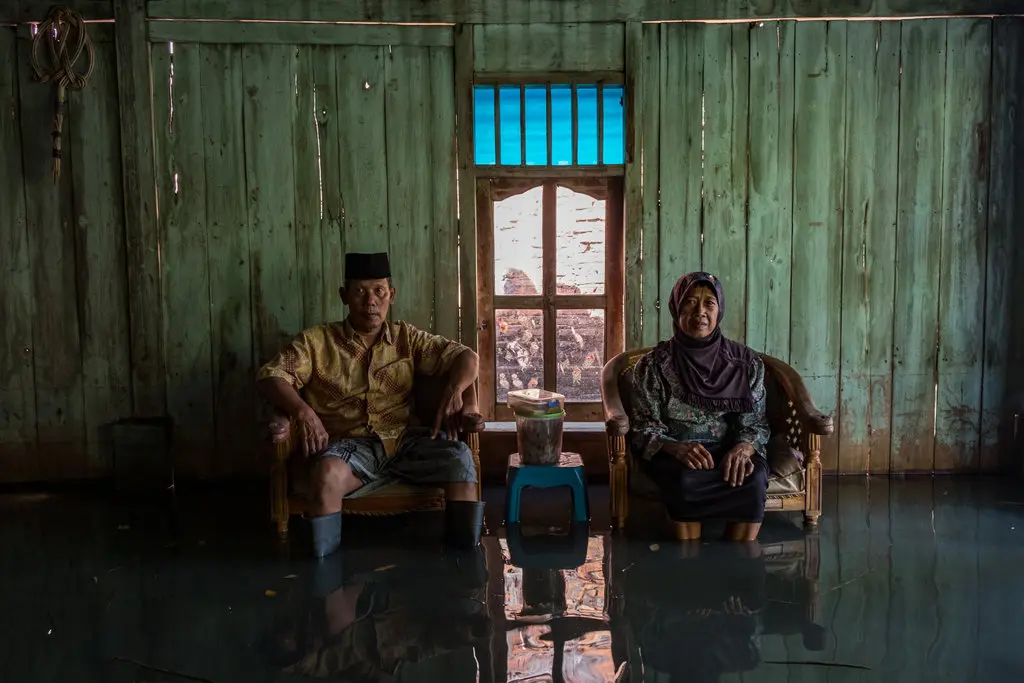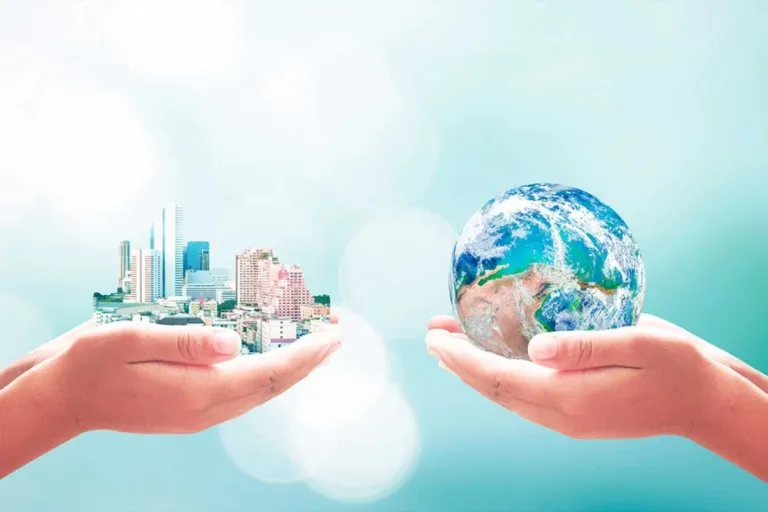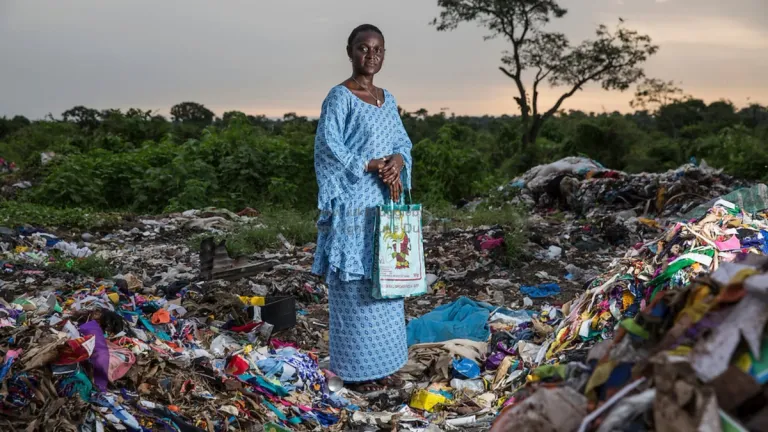Most of us have a reasonable understanding of the term ‘climate change’. We know that carbon emissions are contributing to global warming and that this will have long-term consequences if left unchecked. As such, more and more people are taking steps to live more sustainably, whether that’s switching to a renewable energy provider, opting for public transport, buying locally-produced food, or any other of the many things we can do as individuals to reduce our carbon footprint.
But minimising our environmental impact is just one part of the sprawling climate crisis puzzle. While most of us are aware that climate change brings with it a raft of threats such as extreme weather events, health risks and food shortages, we don’t often consider how these challenges will be distributed across the world. This is where climate justice comes in.
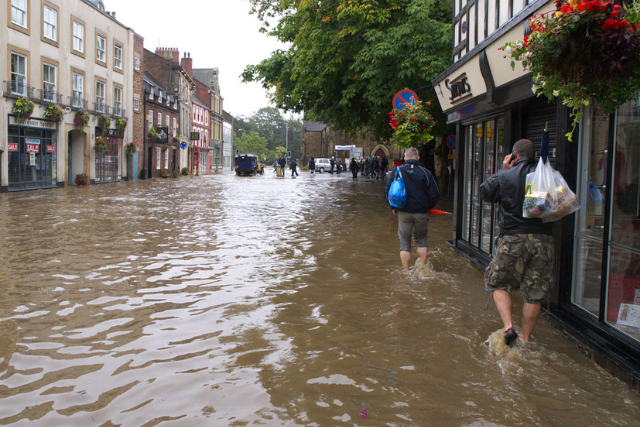
England: Residents wade through flooded streets to escape flood waters. Credit: John Dal.
What is climate justice?
Climate justice acknowledges that climate change will affect people around the world in different ways and that those less able to deal with its effects – including people in the global south, disadvantaged people, and those from minority groups – are the ones least responsible for the emissions that cause climate change in the first place.
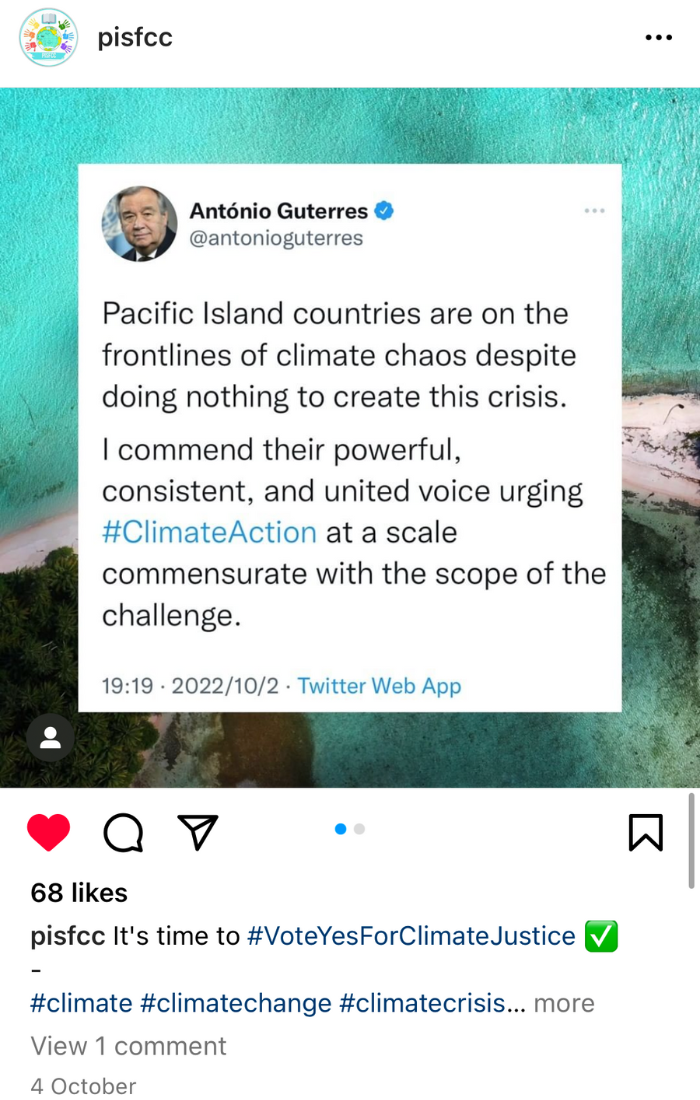
Broadly speaking, western countries and their governments and corporations have contributed the most to climate change, but they are best placed to mitigate and adapt to its challenges because of their social, economic and cultural advantages.
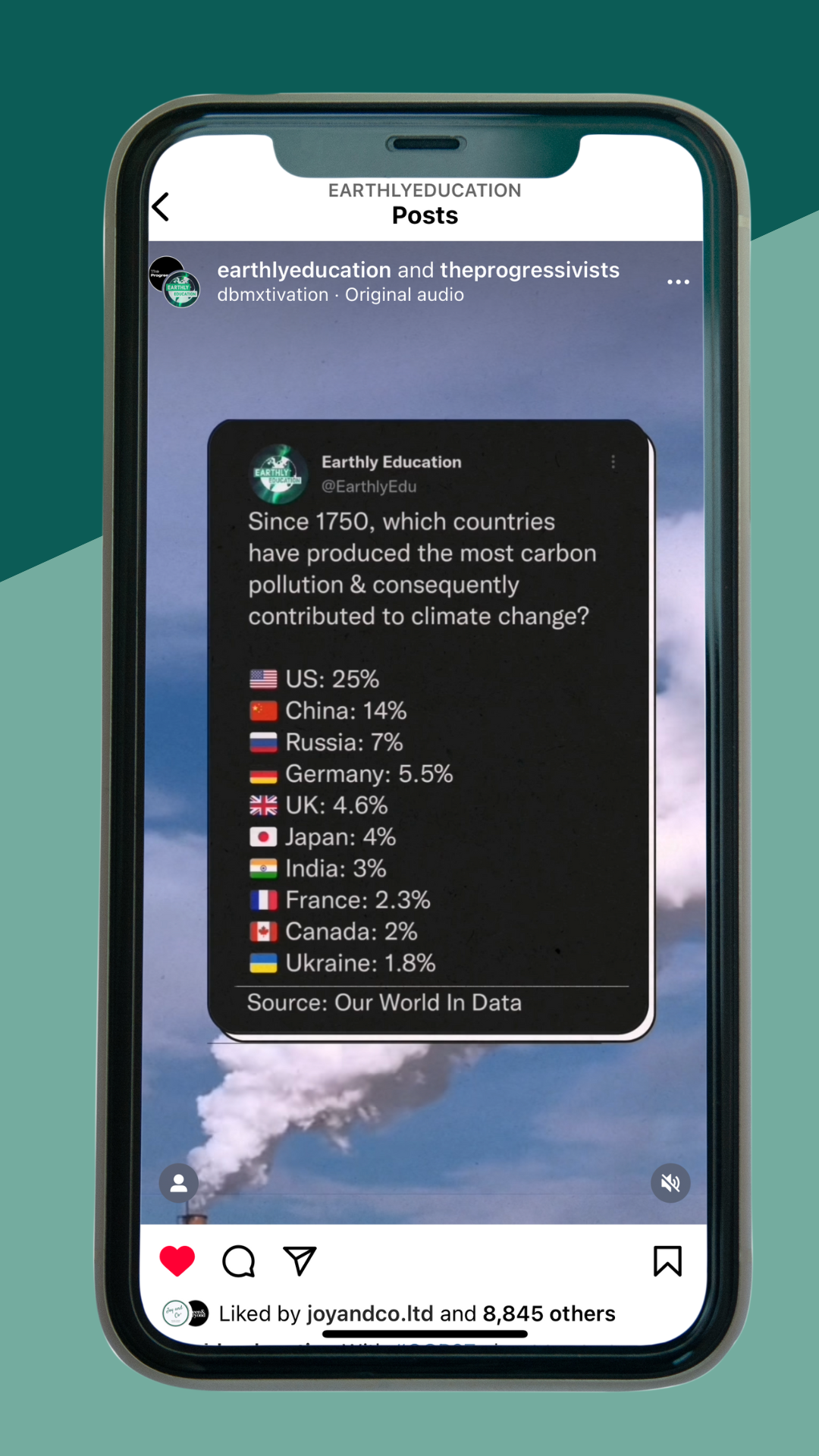
Those in developing countries – often called the ‘global south’ – will be impacted the most because their geographical location puts them at the most risk of extreme weather events such as hurricanes and drought, and they don’t have resources to mitigate or adapt.
Climate justice at a local level
While climate justice is most widely focused on disparities between countries, it’s also applicable at a local level, even within affluent developed nations.
In the UK, for example, some communities will be more affected by climate change than others, such as those living in flood-prone areas, those with health conditions (who will be affected by extreme temperature and air pollution) and people experiencing homelessness. People from lower-income backgrounds will also be disproportionately affected, as they will pay a higher proportion of their income towards the costs of energy and carbon policies, and generally benefit less from those measures than high-income households.
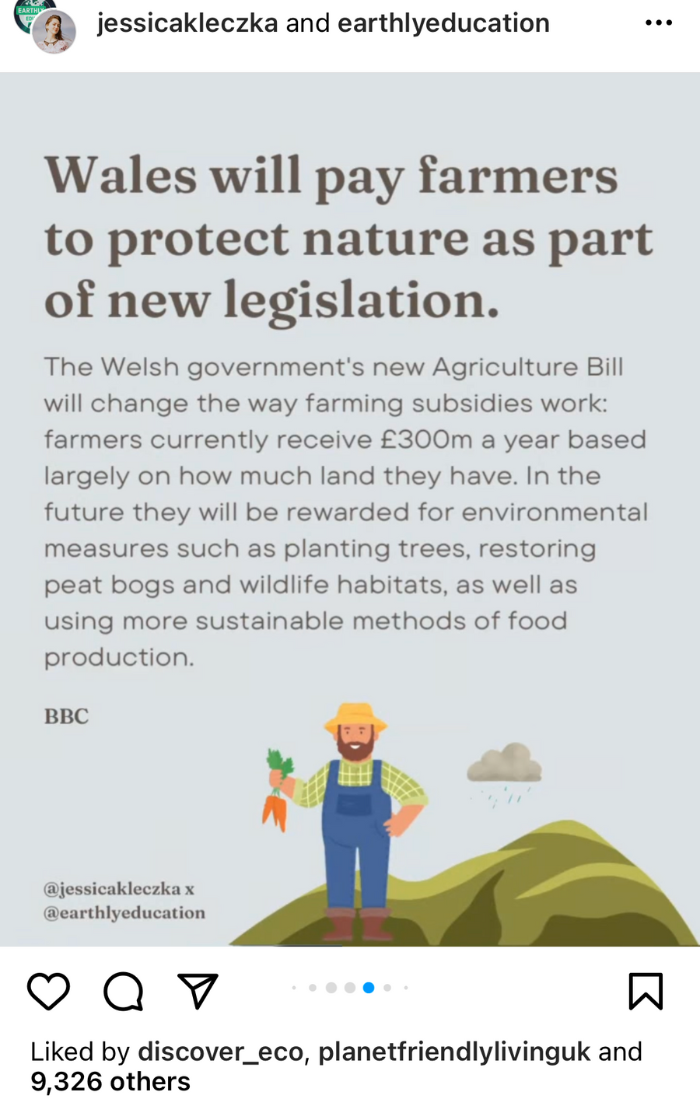
At the centre of the climate justice conversation are also issues of race and gender, and young people who are at risk of inheriting an unliveable planet.
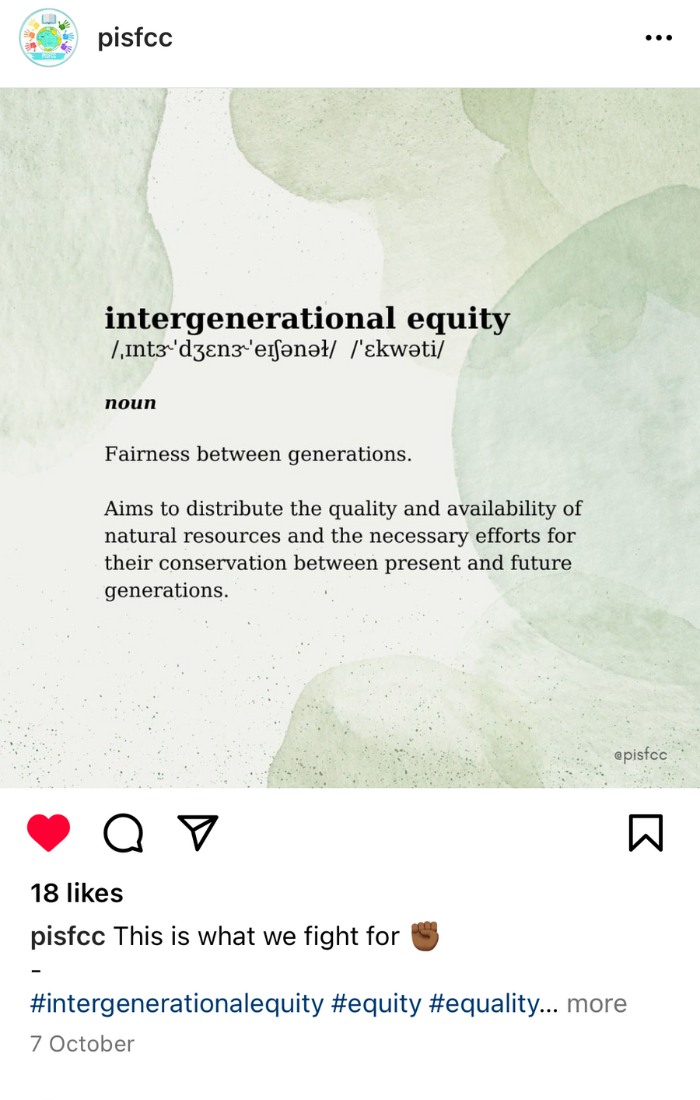
And of course, there’s nature and biodiversity. Oceans, forests and coral reefs that predate human existence and help sustain life, are at risk from humanity’s behaviour.
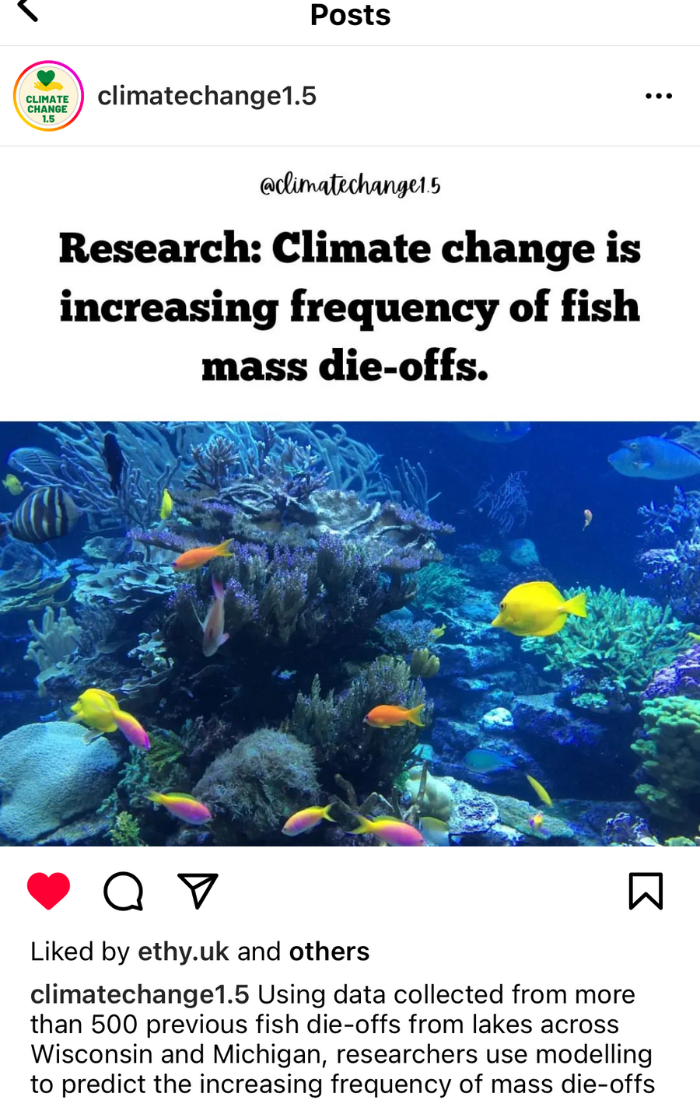
The objective of climate justice
Proponents of climate justice, therefore, want to ensure that collectively and individually we have the ability to prepare for, respond to and recover from climate change impacts – and the policies to mitigate or adapt to them – by considering the existing vulnerabilities, resources and capabilities of everybody.
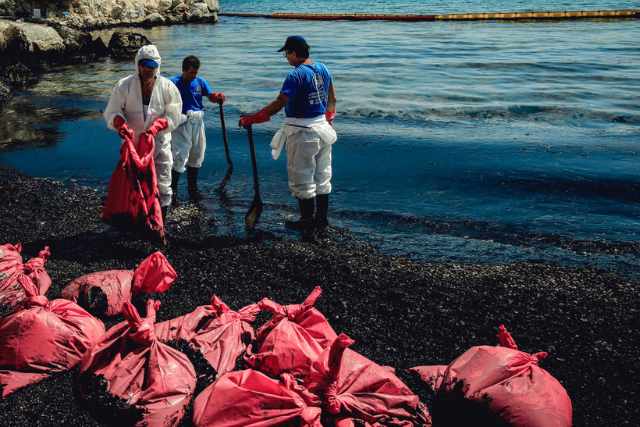
Milos Bicanski / Climate Visuals. Workers clean an oil spill that has polluted a beach of the Salamina Island, Greece. The tanker Agia Zoni sank with a cargo of 2,200 tons of fuel oil and 370 tons of marine gas oil. Oil spills result in immediate and long-term environmental damage that can last for decades.
At the heart of this is work to dismantle individual and structural systems of marginalisation, which includes things like food inequity, lack of education, poverty and inequitable healthcare. In a nutshell, the balance between the ‘haves’ and the ‘have nots’ needs to be redressed.
This links to the United Nations Sustainable Development Goals as well, which are aiming to address the same issues. ethy's sustainability standards are also linked to the Global Goals and show which brands contribute to which goals.
Why does climate justice matter?
Firstly, making sure climate justice features in climate policy is simply the right thing to do. Innocent people are impacted because of factors over which they have no control, and those in advantageous positions have the power to alleviate that negative impact.
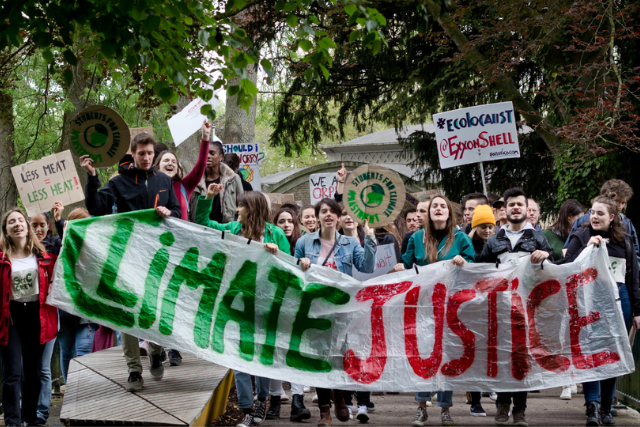
Secondly, ensuring everyone is able to mitigate and adapt to climate change is the only way we can achieve a green, just transition for the entire global population. While we mention redressing the balance between the ‘haves’ and ‘have nots’, it’s not as simple as ‘us versus them’.
If COVID-19 taught us anything it’s that we’re all interconnected, and the injustices faced by others stand to affect us all.
For example, a large proportion of our food is grown in countries most at risk from climate change, meaning global food supplies will be impacted significantly. The products we use every day – clothing, electronics, cosmetics – are manufactured in at-risk areas.
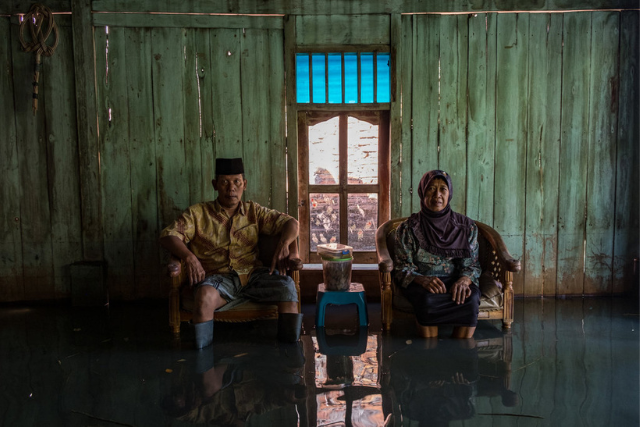
Abdul Muid and his wife Muniah pose inside their flooded home due to rising sea levels. Abdul and his family don't have the money to move to another house, further away from the sea. Central Java, Indonesia. Aji Styawan / Getty Images Climate Visuals Grant recipient.
Climate change will also contribute to disease in areas with poor healthcare provision, which can quickly become a global crisis. And as areas become uninhabitable, we’ll see growing patterns of migration which will create economic challenges – and that will happen everywhere, including the UK. If sea levels continue to rise, large swathes of the United Kingdom will end up underwater, and the people who currently live in these areas will need somewhere to go.
As the latest IPCC report warns, climate change policies need to be designed around principles of a just and fair transition so that everyone can thrive. Otherwise tackling climate change will become an even greater challenge if poverty and suffering keep worsening.
What can I do for climate justice?
Government, policymakers and corporate leaders need to take action to ensure climate justice plays a bigger part in their work. It is gradually starting to appear more frequently in these important conversations – it was discussed in some detail at COP26, for example.
But things aren’t moving fast enough, which is where individuals have a critical role to play
1. Read up on climate justice
Knowledge is power, after all. There are lots of articles, videos, books and talks available online that delve into the topic of climate justice more deeply.
The former United Nations High Commissioner for Human Rights and President of Ireland, Mary Robinson, recommends her top books here.
Also, check out this book: 'Everyday Activism' written by Rachel England, our very own ethy climate justice expert.
2. Recognise inequality and amplify voices
Shine a light on the climate justice movement by sharing the stories of those affected, and using your advantages to elevate those whose voices often go unheard. You can check out some of the best climate justice podcasts and websites we collated for you:
Podcasts:
The Climate Question by BBC on why we find it so hard to save our own planet and how we might change that. On Spotify.
TILClimate podcast sums up a range of complex climate topics in 15 minutes. Listen on Spotify or Apple.
Emergence Magazine Podcast by biologist Robin Wall Kimmerer, centres Indigenous perspectives from interviews to essays. Listen on Spotify or Apple.
How to Save a Planet, hosted by Dr. Ayana Elizabeth Johnson and journalist Alex Blumberg. Informative and engaging, from issues such as energy efficiency and the scope of the climate crisis to more obscure topics like kelp farming and deep-sea mining. Listen on Spotify.
Spotify Climate Action Studios amplify voices from around the world.
Drilled, A true-crime podcast about climate change, hosted and reported by award-winning investigative journalist Amy Westervelt.
Websites:
Lit, a climate justice storytelling project by a nonprofit organisation Earthjustice.
The Guardian's Climate crisis section often covers stories of climate justice.
A collection of reporting from Pulitzer Center grantees.
Facing disaster with courage. Stories from activists on the front line of climate change by ClientEarth.
Stories from real people, shared on the International People’s Platform for Climate Justice (IPCJ) website.
3. Demand change from the government
Governments hold the most power in redressing the balance of climate justice, and we need to ensure they’re acting in the best interests of everybody. Start at a grassroots level by talking to your MP (there are lots of tips here, from the Campaign Against Climate Change). Don’t assume this makes no difference – the UK only introduced doorstep recycling because people came together to lobby their MPs!
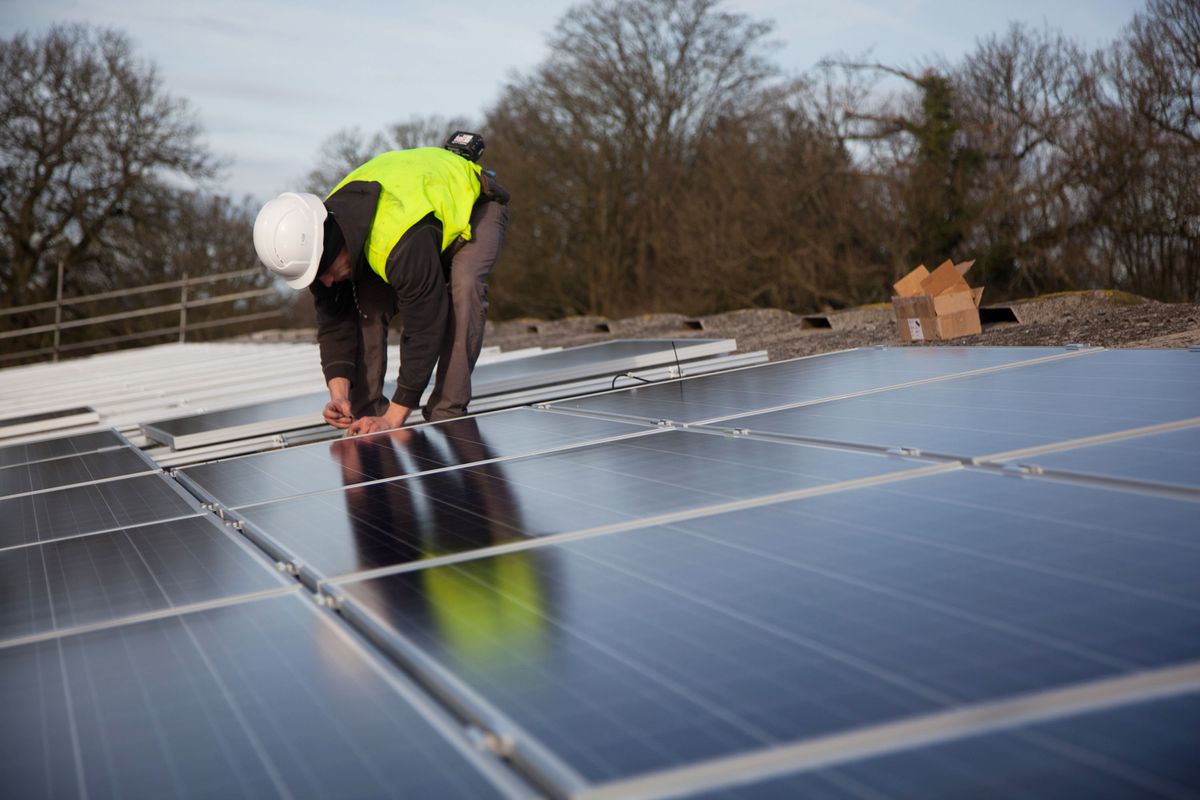
Solar panels are being installed in Balcombe, UK. Kristian Buus / 10:10
4. Hold corporations to account
Big businesses have a massive role to play in enacting climate justice, from ensuring their operations are sustainable to properly looking after workers in at-risk regions. In this digital age, companies are reputation-driven, so if they could be doing better, call them out on social media. Equally, support companies that are doing well – vote with your wallet!
See our guide on how to shop sustainably and use the free ethy app to find verified ethical and sustainable brands.
5. Be a little greener
Any steps you take to be a bit more sustainable will help in the wider climate fight, which ultimately underpins climate justice. Ditching face wipes (typically made from plastic), reducing your meat consumption, choosing eco-friendly loo roll, recycling properly, buying from a sustainable brand on ethy… whatever you do, if we all do something then small change can add up to a big change, and that benefits everybody.
Explore a selection of ethy verified sustainable and ethical brands below:
You may also like...
Sign up for our newsletter
Get the latest sustainability news delivered directly to your inbox.
